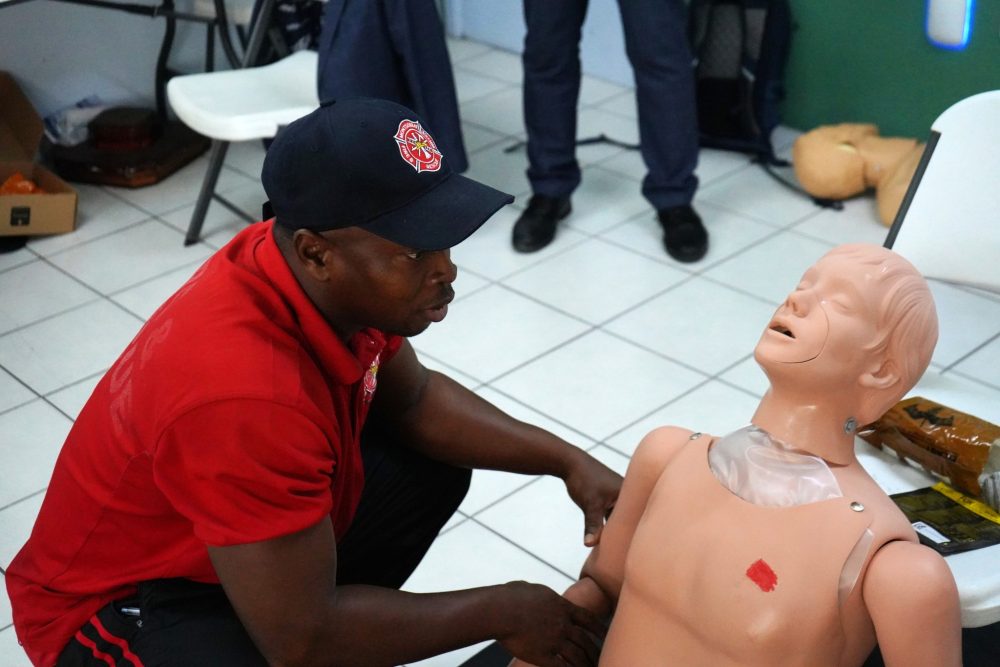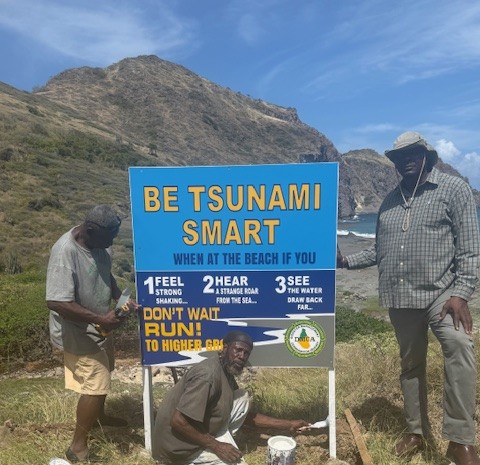The postmortem of Montserrat’s 2019 general election this past Monday, November 18th, will be a continuous, clinical examination and talking point for some time to come.
It will take a while for the memories to fade, if they ever will, and for the dust to settle, if it ever does.
Some of the memories are treasures. Some of the dust is toxic.
From the meteoric rise of the election’s main vote-getter Crenston Buffonge of the Movement of Change and Prosperity (MCAP), to why dethroned ex-leader of the People’s Democratic Movement (PDM) Don Romeo did as well as he did will be the topic of extended debate and scrutiny.
Mr Romeo, dumped from the party, still placed an extremely impressive fourth overall of the top nine vote-getters.
He was only eclipsed by the three ahead of him; one of them his erstwhile PDM party and cabinet colleague, Paul Lewis, who had snatched the party’s leadership from him in an internal no-confidence vote just weeks before the elections – and just days after Romeo had announced the election date.
Lewis won that internecine skirmish but lost the subsequent war on the national political battlefield.
The surprise that independent (former PDM top vote-getter from 2014) Dr Ingrid Buffonge was not in the top nine, and MCAP’s Veronica Dorsette-Hector – a former magistrate – who swept into the parliament at fifth overall in her first political outing, are worthy of note.
So too is the failure of Shirley Osborne, Speaker, PDM insider and daughter of former chief minister John Osborne, to even dent the top twenty.
The list is long and the surprises are many with adequate helpings of commiserations and congratulations to go around.
While priority focus must definitely always be on ‘ the issues on the ground’, there are developments in the air, cyberspace to be exact, that facilitate and sometimes even dictate what happens on the ground.
The utilisation and impact of social media on the 2019 elation campaign has underlined how connected – literally and virtually – Montserrat has become.
That the election campaign largely revolved around the UK-funded re-installation of the volcano-destroyed undersea fibre optic cable – along with several other UK and EU-funded infrastructural projects – is noteworthy for what it highlights.
The social-media interaction between residents and the Montserrat global diaspora points to a range of possibilities this global information technology revolution offers to the island.
And, in the case of the 2019 election, it was used to maximum beneficial effect by those who understand its potential.
Many persons in Montserrat admitted (via social-media) to watching the ground-breaking series of political panel discussions organised by the Montserrat Youth Parliament via the live stream on social media.
The sidebar real time interaction by residents and diaspora during the discussions (they weren’t billed as debates) was another example of the possibilities available.
 Regrettably, social media was also exploited for maximum negative impact during the campaign.
Regrettably, social media was also exploited for maximum negative impact during the campaign.
Any rush to a return to a state of tranquil paradise normalcy (real or imagined) will be incomplete and counter-intuitive without examining the impact on the body politic.
It should not be that any serious examination of the depths to which some elements of the campaign sank should be glossed over as opening old wounds.
The wounds are fresh, and unless addressed, dressed (as in medical), redressed in some way (as in legal; libel cases are being filed), it will fester while we turn the other way…or bury our collective head in the sand and hope it’s all gone.
That is not healing. That is hiding.
The weaponising of social media emboldened some platform and other behaviours which were then further amplified by being uploaded, streamed and shared on the same social media.
Politics evokes passion. But, out of control, unchecked, ‘scorched-earth’ campaigning, either deliberately planned or opportunistic, causes harm – in ways that might not be intended or otherwise estimated.
The thought that they might be intended…well, that’s one for the courts to address.
And to what end if, in the quest for votes, more than votes are lost in the process?
At a 62% turnout, it might be that the community did not just ‘switch-off’ in the face of such regrettable campaigning amplified and weaponised by the wide reach and accessibility of social-media.
It might very well be that about a third of voters got so turned-off by a series of assaults on not just personal but community senses and sensibilities, that they chose not to turn out.
That would speak volumes for what was possibly the most important general election of a generation, and a turning point in Montserrat’s post-eruption rebuilding.
At a 62% voter turnout, it was more vox paucis but still vox populi.
The few spoke for the many.
Kudos to those who nevertheless went and did their civic duty on behalf of all; resident and diaspora.
You might have only intended to vote for your team, but your ballot was a vote for Montserrat.
Montserrat will have a strong opposition and a strong government.
And it should find the strength to ensure that this tone of campaigning doesn’t recur again. Ever.
Discover more from Discover Montserrat
Subscribe to get the latest posts sent to your email.



